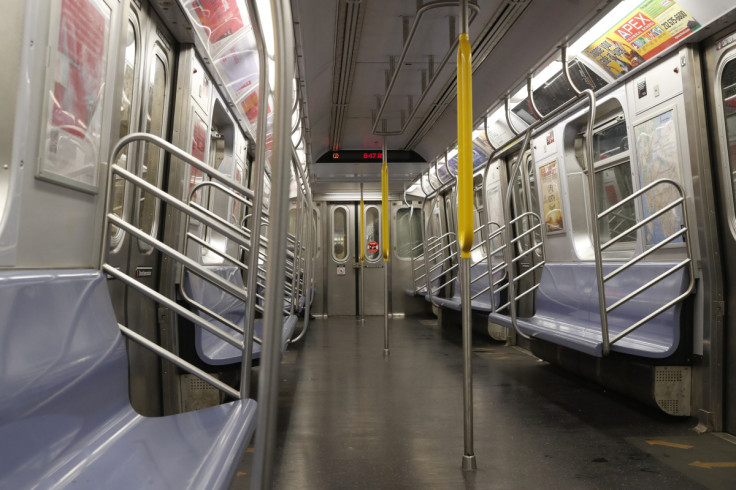Privacy Groups Slam New York's 'Authoritarianism' In Plan To Expand Subway Surveillance

KEY POINTS
- New York Governor Kathy Hochul says the goal is to reduce transit crime
- Surveillance shouldn't be the price riders have to pay to stay safe, says a privacy strategist
- A research director says there are other things the MTA can do to improve subway safety
New York is planning to expand its subway surveillance system by installing two cameras on every subway car. According to New York Gov. Kathy Hochul, the goal is to reduce transit crime, but privacy groups have raised concerns about the supposed "authoritarianism" that comes with the proposal.
Hochul announced Tuesday that the proposal is an expansion plan of a pilot project that sought to improve surveillance in New York's transit system. "You think Big Brother's watching you on the subways? You're absolutely right," she said, adding, "If you're concerned about this, the best answer is don't commit any crimes on the subway."
I’m at the @MTA Corona Maintenance Facility in Queens to make an announcement about enhancing safety on subways. Watch live: https://t.co/YxAdne9Fqm
— Governor Kathy Hochul (@GovKathyHochul) September 20, 2022
Several privacy rights groups have since commented on the proposal, questioning the motive behind installing cameras in over 6,300 subway cars in New York.
In a statement following the Democratic governor's announcement, Albert Fox Cahn, Executive Director of Surveillance Technology Oversight Project (STOP), said New Yorkers "deserve better than digital stop and risk," adding that he is "deeply disappointed that Hochul put New York on an express train to authoritarianism."
Cahn pointed out that residents "want safety, not surveillance," further explaining that the New York governor herself admitted that subway crimes decreased during the summer. Cahn argued that "spying never prevented crime before" and it won't be able to prevent criminals even with additional cameras on subways.
"Living in a sweeping surveillance state shouldn't be the price we pay to be safe," Daniel Schwarz, a technology and privacy strategist at New York Civil Liberties Union (NYCLU), said in a statement regarding the matter.
For Allie Funk, a research director at human rights advocacy non-profit Freedom House, there is "a long list of things" the Metropolitan Transportation Authority (MTA) can do to protect the people's safety instead of increasing surveillance. Funk noted that the plan "will undoubtedly have a disproportionate impact on the most marginalized communities."
Aside from civil rights and privacy advocates, regular citizens also expressed their thoughts on the matter through Twitter.
One user said that instead of designating funds for surveillance, the budget for such expansion should be allocated for "childcare or vaxxes to get subway riders back to work."
The expanded surveillance proposal would give New York's transit system the authority to spend $5.5 million of state and federal funds to ensure that the surveillance equipment is installed in subway cars by 2025.
I have lived in New York City my entire life, we are already a PRO POLICE state , now we’re adding additional surveillance on subway ‘s . It’s not going to have any impact on transit crime . We need to address the root causes of violence . Adding more cameras and officers does
— Caillou Borden (@caillouborden12) September 21, 2022
Another Twitter user pointed out that adding cameras on subway cars "does nothing" in addressing the "root causes of violence."
In a press release on the transit proposal, chair and CEO of MTA Janno Lieber said that subway riders "should know we've got their back for their entire journey," adding that the "significant upgrade" is a "great step" in reinforcing the confidence of New York riders in the transit system.
© Copyright IBTimes 2025. All rights reserved.






















